Puppy Prerequisites: The BasicsOur basic training program is the Puppy Prerequisite program, which teaches your new puppy all of the foundations for obedience, house training, and manners. This program is a 4 week training experience, and your puppy will receive 2-3 training sessions per day, in addition to living with their trainer like part of the family. The training program typically starts once the puppies turn 8 weeks old, and will capitalize on their early experiences and socialization that they receive while with their litter. The cost of a puppy that has graduated from this program is $4,000, and that money is your investment in having a well mannered, obedient family pet for the next 12-15 years. Crate TrainingCrates are one of the most valuable tools you can have when bringing home a new puppy. The crate can serve as a safe place to go for eating and sleeping, a management tool during house breaking, and a place for your dog to ride in the car for safe travel. In order for the crate to function as a versatile training tool, the puppy needs to be properly introduced to the crate in a way that is positive and constructive. During the Puppy Prerequisite program, your puppy will have a thorough introduction to the crate. He will learn how to go into the crate on command, how to wait to be invited back out, and he will learn how to relax quietly in the crate during downtime. This training will be effective for both crates in your house and in your car, and will be a great tool to teach your puppy how to travel calmly. Potty TrainingOne of the most frustrating parts of owning a puppy is teaching them how to potty outside reliably. We take a holistic approach to potty training, and your puppy will be well on his way after he graduates from this program. The first part of this method is ensuring that your puppy has the appropriate management tools, and all puppies from this program will be comfortable in a crate and an x-pen. We will also begin to teach the puppy to ring a bell when they need to go outside, so that they begin to learn that they can tell you when an urgent bathroom trip is needed. We will also start to introduce your puppy to the concept that going potty outside is rewarding for him, and that it's the appropriate place for him to eliminate. Most importantly, we will establish a schedule for your puppy so that his bathroom times will be far easier to predict, and following up on the potty training foundation will be a breeze. Basic Obedience CommandsWe cover several different basic obedience behaviors during this program. The first thing that we will cover is name recognition. We use the dog's name before a command to get their attention before asking for obedience, and the dog must know their name in order for this to work. Puppies in this program will have a very prompt response to you calling their name, and will have full name recognition. Once we've covered name training with the puppies, we start to introduce them to the recall command. "Come" is the most important command that you can teach to a dog, as it has large safety ramifications. The start of a reliable recall begins at a young age when we teach the puppy that recalls are very reinforcing and fun. While the puppy will not be completely reliable at such a young age, they will have a very strong foundation and will have started to perform recalls around distractions. We will also start your puppy on learning the concept of leash pressure. The easiest way to stop your dog from pulling on the leash is to never let them start, and we begin this concept from day one with this program. Puppies naturally want to resist and pull against the leash when first introduced, but we introduce the leash in a way that teaches the dog to happily come with the leash whenever they feel any tension, and that staying near their human, on a loose leash, is very reinforcing for them. Establishing this behavior from a very early age will make walks far more enjoyable than a dog that pulls like crazy. We will also give you the information and assistance that you need to continue this training with your puppy after they graduate from the program. We will also teach the puppy the sit and down commands, and begin their training on stays. While many trainers teach puppies hand signals for these behaviors, we teach the puppies to do these commands on a verbal cue. Hand signals work great, but only when the puppy is looking at you. We firmly believe that commands must be on a verbal cue in order for them to be truly reliable. In terms of reliability with these 12 week old puppies, they will not be infallible, but they will be able to perform both a sit and down stay for short periods of time. We also teach the puppies to sit and wait before going outside, eating their meals, getting into the car, and anytime they go through a door. The final obedience command that we will teach to your puppy is the place command. This is a very useful command during puppyhood, and retains its versatility well into the dog's adult years. The place command involves the dog placing all four feet on an object, and remaining there until they are released by their owner. Typically this is done using a dog bed, but it can be generalized to any object that is elevated or a texture difference from the ground. Some great times to use this command include when somebody comes to the door, during meals, or when you need a break from the puppy but don't want to put her in a crate. By the time the dog is fully mature, they should be able to hold this behavior for a few hours at a time, but at 12 weeks we only expect them to maintain this behavior for a maximum of 15 minutes. House MannersAnother key aspect of our training program is to teach the puppy manners around the house. This includes not jumping on people, and how to respectfully greet both family members and strangers. We also cover behavior around food, like not begging at the table, staying out of the trash can, and we also introduce the puppy to the leave it command. The puppies have all been raised in the house around normal household noises, sights, and smells, and they will continue this exposure as they continue through the program. We are one of the only breeders whose training program is run in a home environment. SocializationSocialization is one of the most vital aspects of training a puppy, because this is the one area where you can never make up for lost time. There is a key socialization window between 8-16 weeks of age, and we capitalize on this window during our training program. Your puppy will be introduced to people and dogs of all ages, and we will ensure that all of these introductions are positive learning experiences for the puppies. This will help the puppy's confidence and sociability to grow. We will also expose the puppies to noises, surfaces, and other things that might scare other dogs, but that these puppies will handle with confidence. We can also customize the socialization aspect of the training to fit your individual needs. For example, if you are an equestrian, we will expose your puppy to horses and a barn environment. If you are big into water sports, we will introduce your puppy to water. Handling TrainingThis is the portion of training that your groomer and veterinarian will thank you for. Many dogs are uncomfortable with their feet, ears, and mouths being examined, and they hate having their nails trimmed and teeth brushed. We prevent this from developing with our puppies by introducing them to all of these handling exercises at a young age, and making sure that they are relaxed and obedient when it comes to having basic grooming and examination tasks. This is another area where we capitalize on the early socialization window, and we can shape the puppy's outlook on physical handling for the rest of their life. The Training TransitionWhen you enroll your puppy in the Puppy Prerequisite program, your training does not end when the puppy goes home. You also receive support from your trainer, and a road map on how to make sure that the training transitions to your home environment. You have made an investment in the life of your dog, and we want to ensure that you are both successful on the tail end of training. Additional training programs are also available to graduates as they get older. If you are interested in reserving a trained puppy from a future litter, please contact us to receive a puppy questionnaire.
1 Comment
Our Newest Golden Retriever, Amore Veritas TorontoWe are excited to add this beautiful Russian import to our breeding program. He is settling in, learning English, and loving Kentucky! Toronto is a lovely white color, and has lots of bone and substance. These are some of the traits that we really like about the English Creme type and we will be adding these traits through both Toronto and our other Russian import, Chuki. Pending his final health clearances, we hope to see some lovely Toronto puppies in the next year!
Even Golden Retrievers Need SocializationSocialization is one of the most important jobs that every new puppy owner has. When you bring home one of our puppies, they have already been started on this process. We expose them to all kinds of noises, sights, and smells that they would normally encounter in the house. They are introduced to older, safe dogs of various breeds, and get to see cats and other types of animals. They have been handled extensively by multiple different people, and have gone on car rides and adventures. Our puppies have the added benefit of good genetics when it comes to temperament. All of our breeding stock is extremely social with both people and dogs, and they pass this wonderful temperament onto their puppies. The combination of good early socialization and good genetics means that your new puppy will be getting off to a very strong start. Once you bring the puppy home, you now have to continue through the next few months of the puppy's life. Introducing your puppy to a bunch of new environments, letting them see dogs of all shapes and sizes, and letting them interact with multiple different people will help ensure that your puppy will be confident with new experiences for the rest of his life. The most valuable socialization period is in time between 4-14 weeks. We'll cover the first 4 weeks of that period, and for our training program puppies, we will continue to provide them with lots of good socialization opportunities. For those who go home at 8 weeks old, here are 5 tips to help you get the most out of this window. 1. Respect Your Puppy's Own PacePuppies develop at different rates, and each one has different thresholds for new things. Some things that you introduce your puppy to, like friendly dogs and people, they will instantly find fun and interesting. Other things, like loud speakers or larger livestock, might make them nervous at first. Start working with your puppy at the threshold of when they are a little worried about something, and start turning that thing into something positive. Do focus work and feed the puppy around the environment or item of their concern, and get closer as their confidence begins to build. You will see that very quickly your puppy will be willing to approach with zero apprehension because they now associate the environment with a high level of reward and interaction with you. 2. Consider Your Puppy's Vaccine ScheduleAll socialization experiences should be fun and safe for your puppy, and part of that is making sure that your puppy does not get exposed to any diseases that they have not been vaccinated for. Waiting until the end of your puppy's vaccine series would mean that he was safe from all of these diseases, but would also mean that he missed out on the bulk of his early socialization window. There is a balance between keeping your puppy safe and still allowing him to get lots of new experiences. Make sure that all of the dogs that your puppy is meeting are vaccinated and healthy. Choose new locations to take your puppy that do not have very much dog traffic. You can take him into Petsmart later on once his vaccines are finished, but until then he should not be walking around on the floor there. Better options for a very young puppy would be places like pet friendly hardware stores, sportsman/outdoor type stores, and offices of friends who would let you bring a puppy over. 3. Not All Dogs Are Created EqualWhen choosing dogs for your puppy to meet, keep in mind the experience that you want him to have. Dogs that have shown aggression toward another dog, or even those who play rough, can cause your puppy to have a bad experience that he may generalize with other dogs. Any dogs that your puppy is meeting should be friendly, vaccinated, and they should play at a level that is appropriate for the puppy. Your puppy should also be meeting dogs of all shapes and sizes. A French Bulldog looks quite a bit different than a Doberman, and your puppy should see all kinds of breeds so that he can understand that dogs can come in many forms. Meeting small dogs is also very important, so that your golden retriever, who is going to be a big dog one day, respects that these are still dogs and not toys or prey items. A final note on socializing with dogs is to avoid dog parks with your puppy. The reason for this is two fold: disease and problem dogs. When you go into a dog park, you are going somewhere that hundreds of dogs have gone that same week. You do not know if those dogs were vaccinated, if they were dewormed, and many people do a poor job of picking up after their dogs in these parks. Furthermore, you do not know the temperament and training of the other dogs in the park. We have seen first hand the kind of damage that can occur when an overly pushy or aggressive dog comes into a dog park, and it happens all too often. There are many other options to have fun with your dog that are much safer. 4. Balancing Your Social ButterflyWith a puppy that is naturally social, your socialization process needs to include steps on keeping your puppy more interested in you than he is in the rest of the world. Our rule of thumb with our goldens is that the dogs should be able to greet and play with other people and dogs, but that they should come as soon as we call them and be able to stay focused on us even when their friends are hanging out around us. To create this kind of balance, take your puppy to new places and work on obedience and focus games while distractions are ongoing in the background. Gradually increase the difficulty level of this as your puppy gets older. 5. Make Sure Your Puppy Remembers His MannersYour socialization trips can double as a great time to work on generalizing good manners with all of the people that your puppy meets. Before you let someone pet your puppy, let them know that you are working on teaching him manners, and give them specific instructions depending on what you are working on. Do not allow your puppy to jump on people, and work on building a strong behavior for him to default to when being greeted. Typically we teach the puppy to sit for being petted, and this will help make your puppy a model citizen. Jumping and rambunctious greetings may seem very cute with a young puppy, but will be a nuisance when your dog is full grown. You can establish lifelong habits and behaviors at a young age and not have to fix issues as your dog moves through adolescence.
Summer Litter PlansTango has been bred to Jake, and we are expecting puppies this summer! This is a great pairing, and should produce great family companions as well as prospects for therapy or service dog work. Puppies would be 8 weeks old around the end of July, and could either go to their new homes or go into one of our training programs. We already have several reservations on the waiting list for this litter, please contact us to be added to the list.
These puppies are home raised in a loving environment where they get the best start we can give them. We incorporate multiple techniques to ensure that the puppies get early socialization, including Puppy Culture work and Early Neurological Stimulation. Raised by veterinarians, these puppies will also get very good veterinary care from the moment they are born to the moment you bring them home. Rowan, Puppy Essentials Plus GraduateRowan, one of the adorable golden retriever puppies from our fall litters, is about to graduate from our Puppy Essentials Plus program. Over the course of this program, Rowan has learned many new things that will make him an excellent pet for his new family. In addition to commands such as "sit", "down", and "come", Rowan has had extensive socialization and handling training, and has learned house training and good manners. Rowan has a fantastic temperament, and has been thriving in the training program. He is very confident and social, and has already been on several training outings where he was a model citizen. We are very excited for Rowan to head to his new home in Virginia, and we know he will fit in perfectly with his new family.
We would like to wish a very happy New Year to all of the Waterfront Golden Retrievers family. 2016 was a fantastic year for us, as we welcomed two litters of puppies imported the beautiful Chuki from Russia. We got to watch Hopper start to develop into a very handsome dog, and have had a wonderful time hanging out with the girls at the creek. All of us are very excited to see what 2017 has in store for us!
Our newest addition, all the way from Russia!Siberian Soul Chukotka, or Chuki for short, is a female golden retriever that has just joined us. She was born July 27th in Russia, and was bred by Lin Vorobjova. Chuki is settling in very well to life in Kentucky, and her wonderful temperment has made us fall in love with her from day one. Sire: Russian CH. Malet Park Open My Eyes My Hero HD-A ED-0 PRA 1&2 Clear ICT carrier Dam: Anestik's Pasadena HD-B ED-0 We are loving all of the puppy breath!We don't think that there is anything cuter than a golden retriever puppy! Foxtrot's litter is doing really well, and Foxtrot has been an excellent first time mom.The puppies are growing bigger every day, and are super happy, confident little bundles of fur. They are starting to develop their individual personalities, and it's always interesting to see how they grow into their unique selves. As they continue to grow, we evaluate their blossoming personalities to best match them with their future homes.
Our experience with both the training and veterinary sides of the dog world gives us a unique knowledge of how to raise confident puppies.Although golden retrievers are generally a very stable, outgoing breed, they still need to receive plenty of socialization and exposure to different environments. We believe that a huge amount of learning takes place before the puppies ever set foot out of the whelping box, and we try to maximize this precious period of time with them.
When a puppy is born, it immediately begins to learn about the environment. Most of their education for those first few days is based on smell and touch, which allows them to nurse and to begin to learn how to navigate amongst their siblings. We also take advantage of this very touch-sensitive time to begin to introduce them to human touch and human smells. We make sure to touch all of their feet, ears, tails, and muzzles to give them a very early jumpstart on handling training. Our litters are all born in our homes, so that we can be with them as much as possible, both to help mom out and to ensure that they are progressing as they should be. At about 2 weeks of age, the puppies begin to gain some more senses. Their eyes will start to open, and their ears will start to pick up on sounds. At this time, we will start playing the radio or the TV softly in the background, let the puppies hear recordings of dog show sounds, and let them hear the sound of a vacuum cleaner a few rooms away. At around 4 weeks, the puppies are starting to get much stronger and have an easier job moving around. We will start to expose them to different surfaces and to puppy adventure boxes and agility equipment. When they are exposed to new and potentially alarming changes in environment at this age, surrounded by littermates, they learn to explore with boldness and confidence. As the puppies keep getting bigger and stronger, we continue to challenge them at age appropriate levels. They will start to go outside to feel the sensation of grass, gravel, concrete, and other surfaces. They will continue to get handled multiple times a day, and exposed to new and different people, including children. They will also get a chance to see dogs of different shapes and sizes, but always dogs that we know are healthy, vaccinated, and safe for the puppies to be around. The puppies will have had colored ribbons to identify them, and those will be switched over for collars. This very early introduction to the sensation of a collar will simplify the introduction to leash walking. Puppies will also get the chance to go for car rides, and to see that the world goes beyond the house and the yard. By providing our puppies with a solid start in exposure and socialization, combined with early vet care and quality nutrition, we can set them up for optimal success when they go on to their forever homes. For puppies who go into a training program, this kind of work will continue for as long as they are in our care. For those who go home at 8 weeks of age, we will provide each new home with information on how to safely continue to socialize their new family member. Tattle's puppies are just over 2 weeks old!These beautiful little puppies are all doing wonderful. Tattle has been doing an awesome job as a first time mom to 10 little golden retrievers, and we are having a great time watching them grow up. They have fantastic homes lined up and as their eyes start to open, we are gradually introducing them to more sights and sounds of a home environment. Some of them will be with us for only 6 more weeks, but others will stay on to complete one of our training programs. Here are some new pictures of the puppies!
|
Archives
June 2017
Categories |
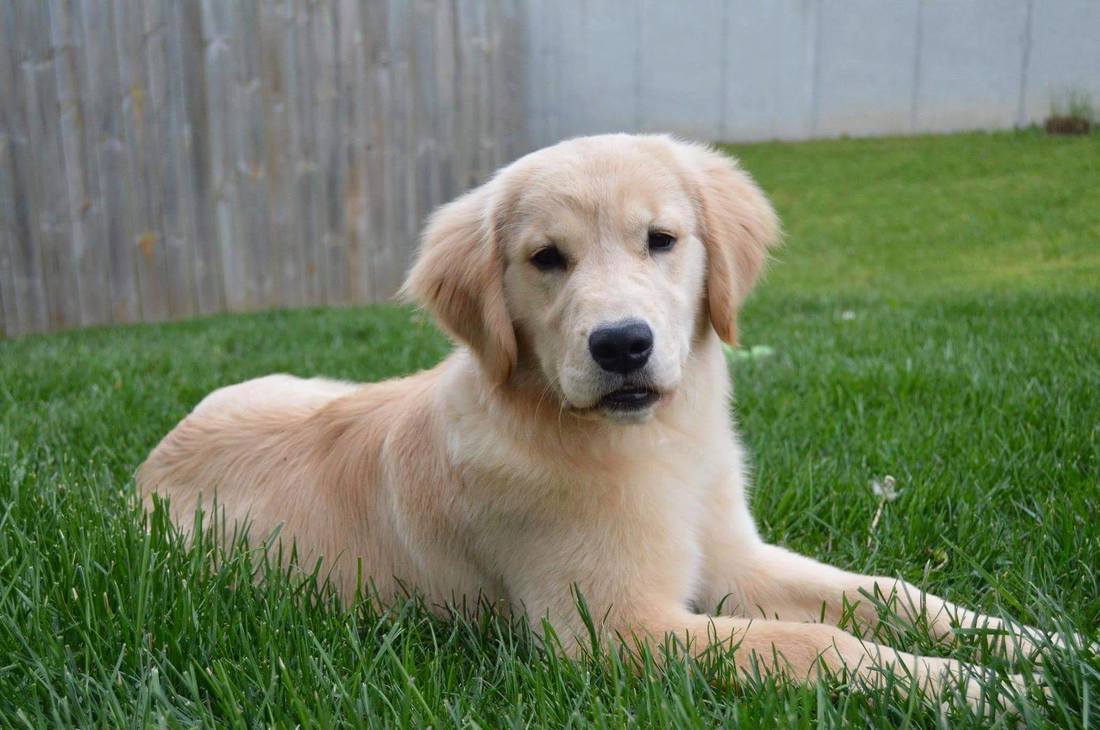

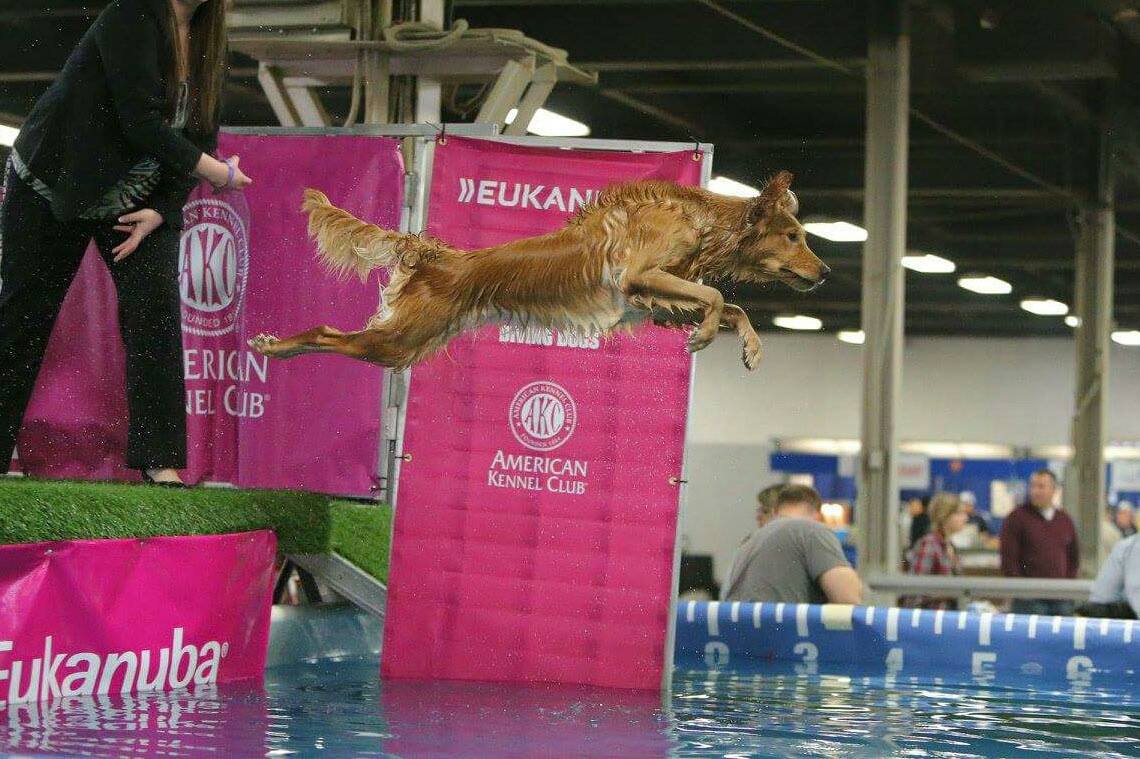
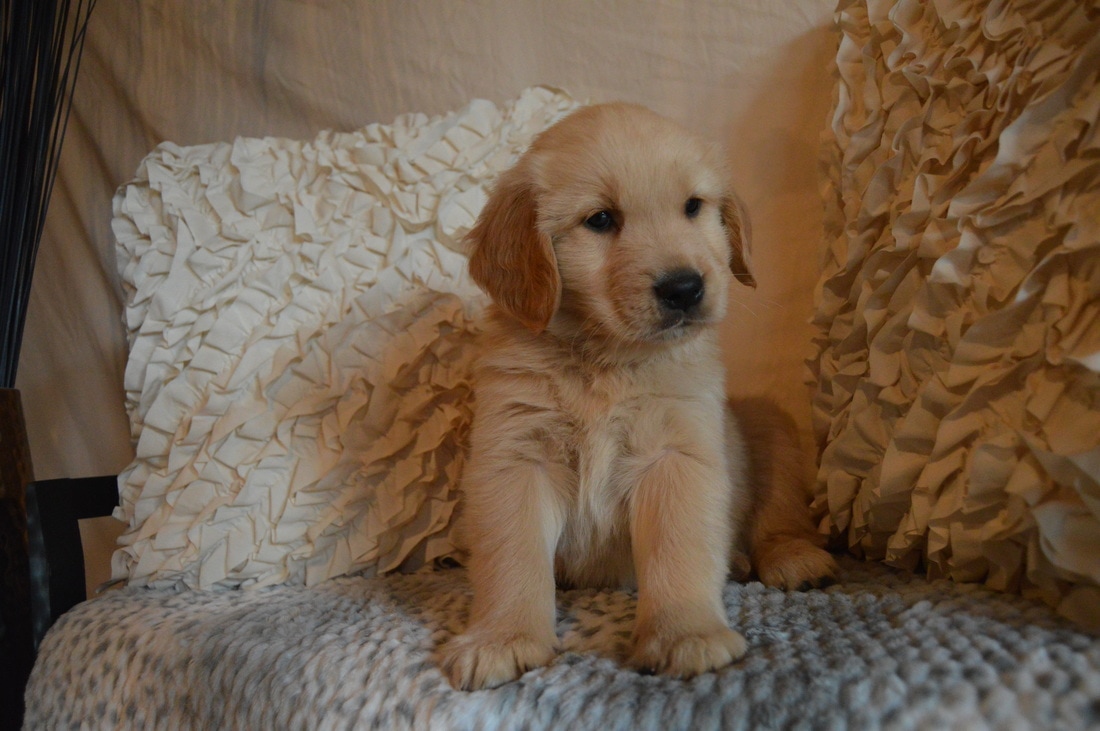
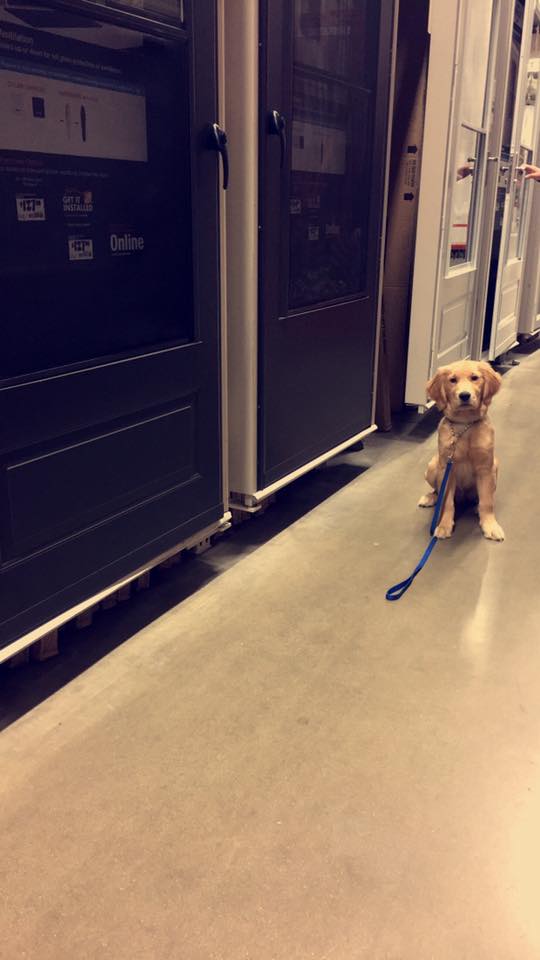
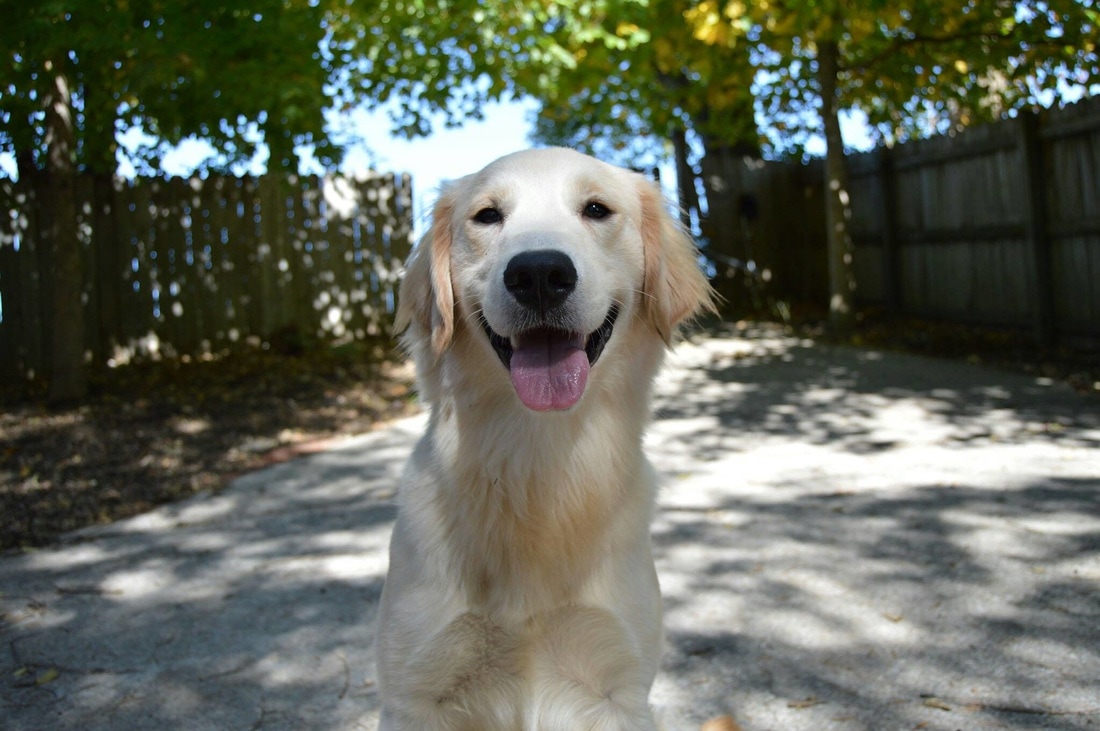
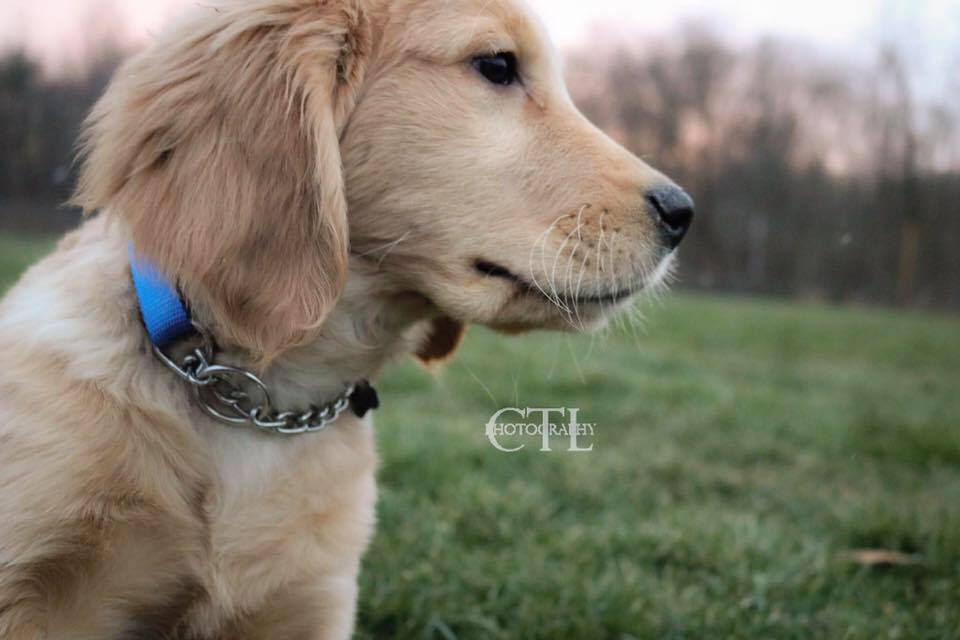
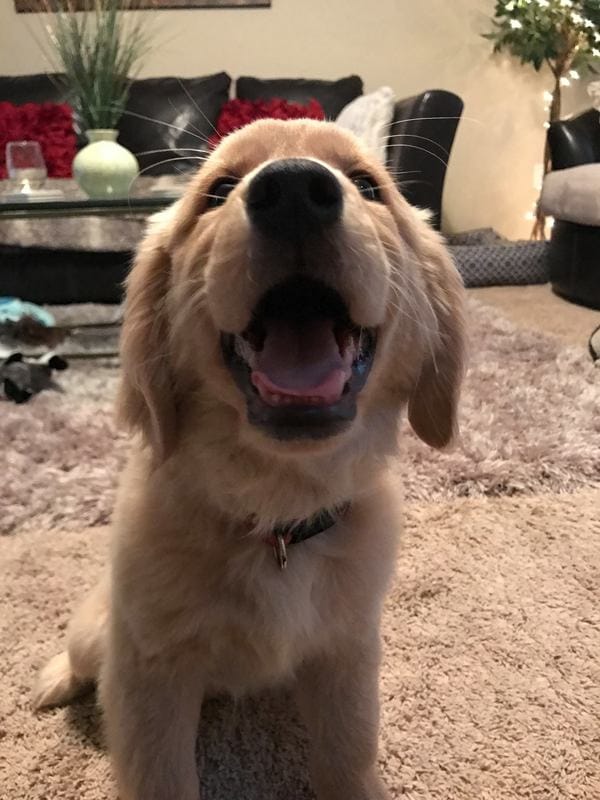
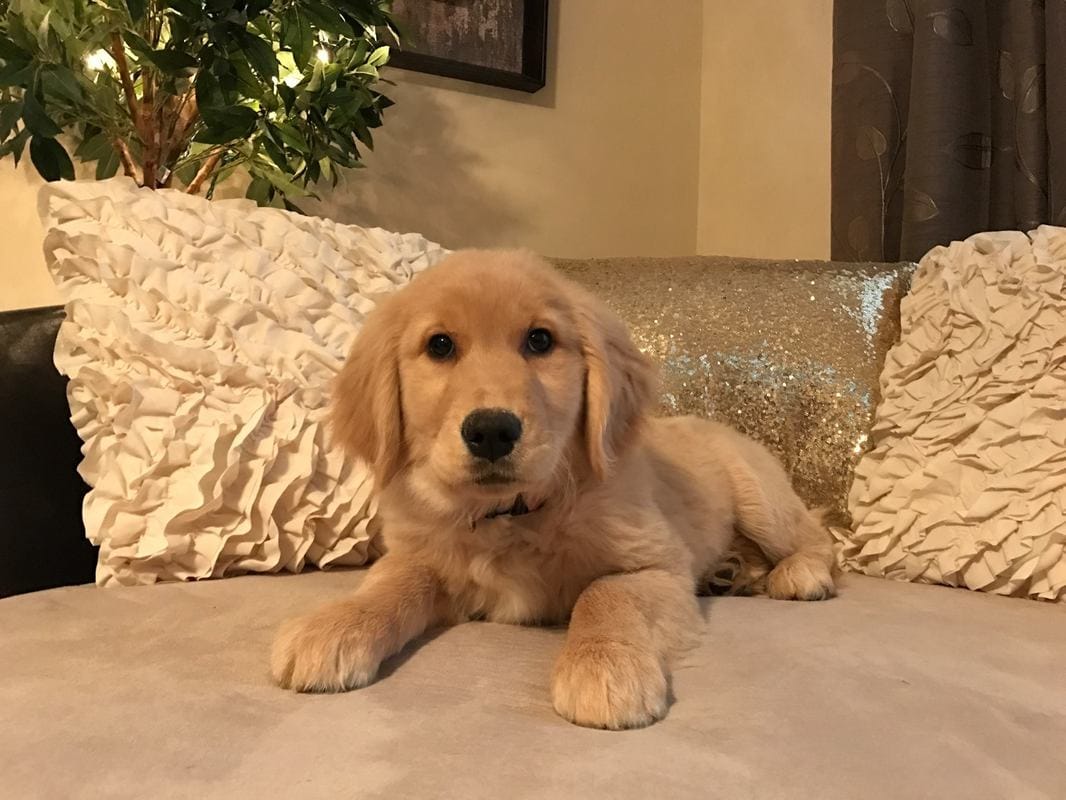
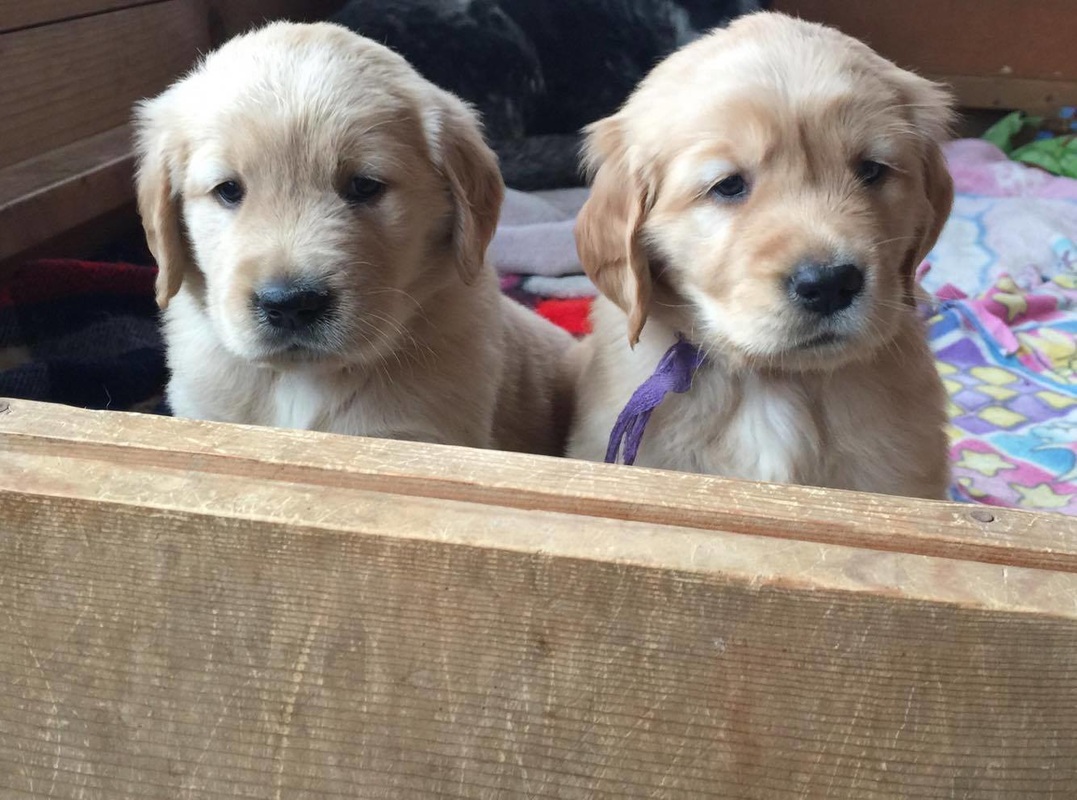
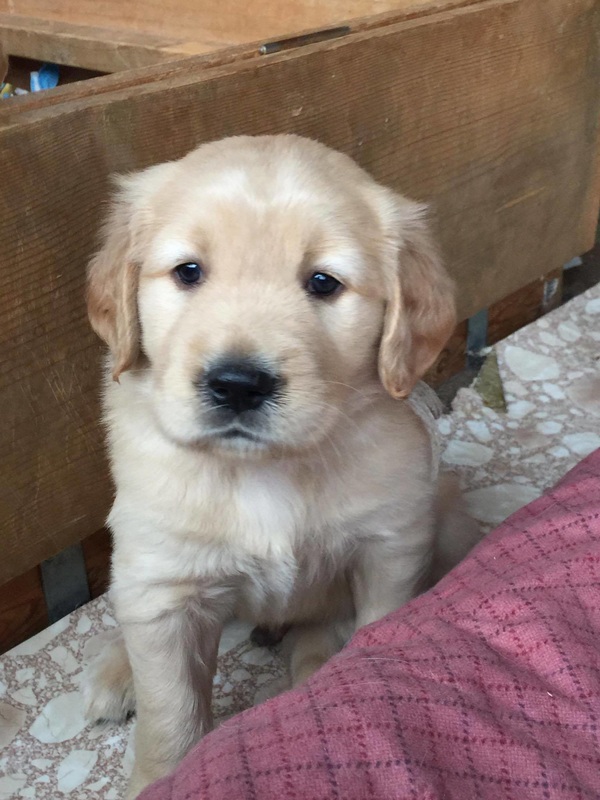
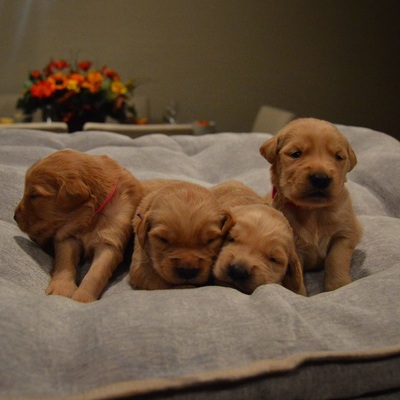
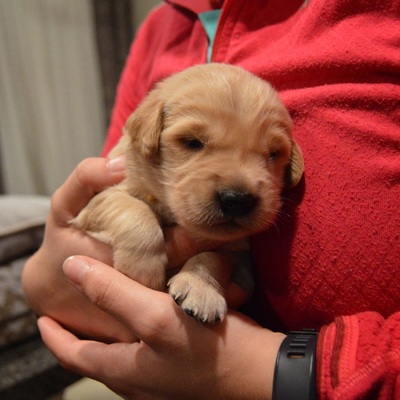
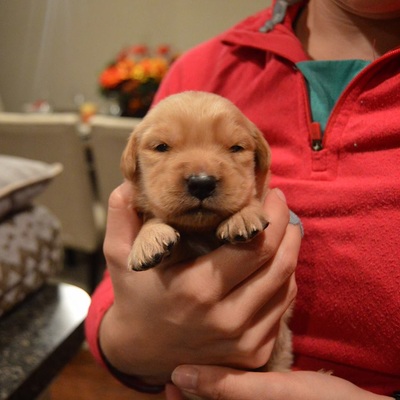
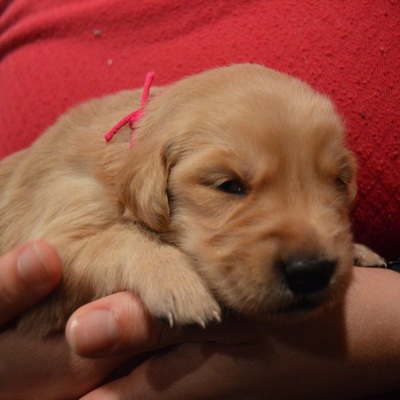
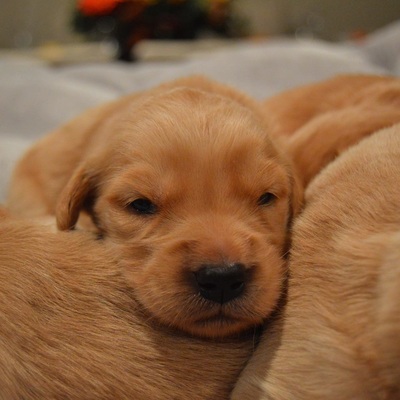
 RSS Feed
RSS Feed